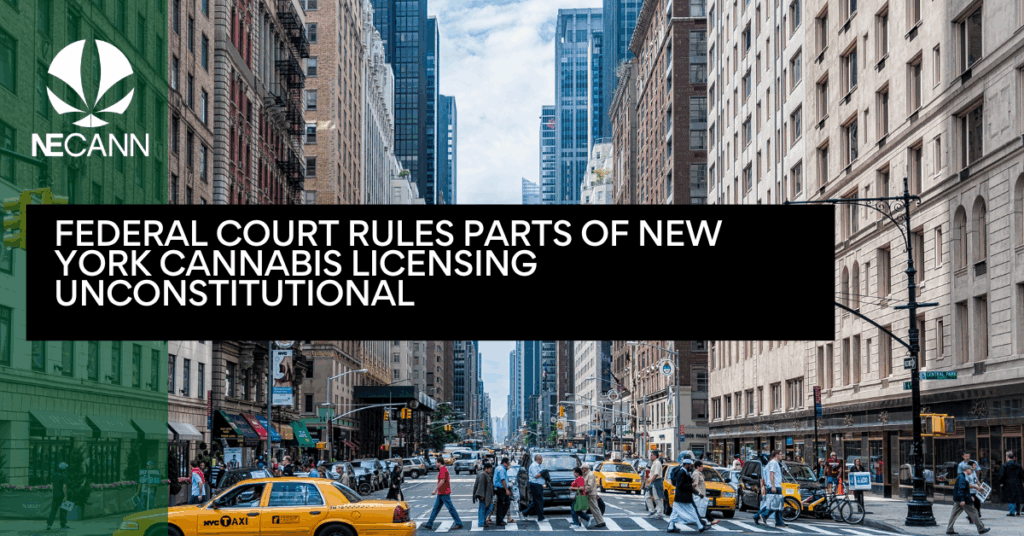A federal appeals court in New York has ruled that parts of the state’s social equity licensing program for cannabis are likely unconstitutional. The decision, issued by the U.S. Court of Appeals for the Second Circuit in Manhattan, is the first time a federal circuit court has applied the dormant Commerce Clause doctrine to adult-use cannabis markets.
In a 2–1 ruling, the court said New York’s rules unfairly exclude applicants with federal or out-of-state cannabis convictions from receiving priority, while giving preference to those with convictions under New York law.
“Under traditional dormant Commerce Clause principles, New York’s prioritization of applicants with convictions under New York law is a protectionist measure that cannot stand,” wrote Circuit Judge Dennis Jacobs in the majority opinion.
The case, Variscite NY Four, LLC, Variscite NY Five, LLC v. New York State Cannabis Control Board, et al., was brought by two out-of-state applicants denied priority status. While the ruling does not immediately affect licensing or existing cannabis businesses, the case has been returned to the trial court for further proceedings.
Chief Judge Debra Ann Livingston dissented, arguing that the majority misapplied constitutional principles by failing to account for Congress’s role in federal cannabis policy.
“Congress has the power to regulate some purely intrastate activity,” Livingston wrote. “In assessing whether the challenged aspects of New York’s licensing scheme aid Congress’s objective, we must focus on Congress’s ultimate, constitutionally authorized objective: eliminating interstate marijuana transactions.”
The ruling could have significant implications for cannabis licensing across the country, where many states have adopted residency or conviction-based social equity requirements that may now face new legal scrutiny.



